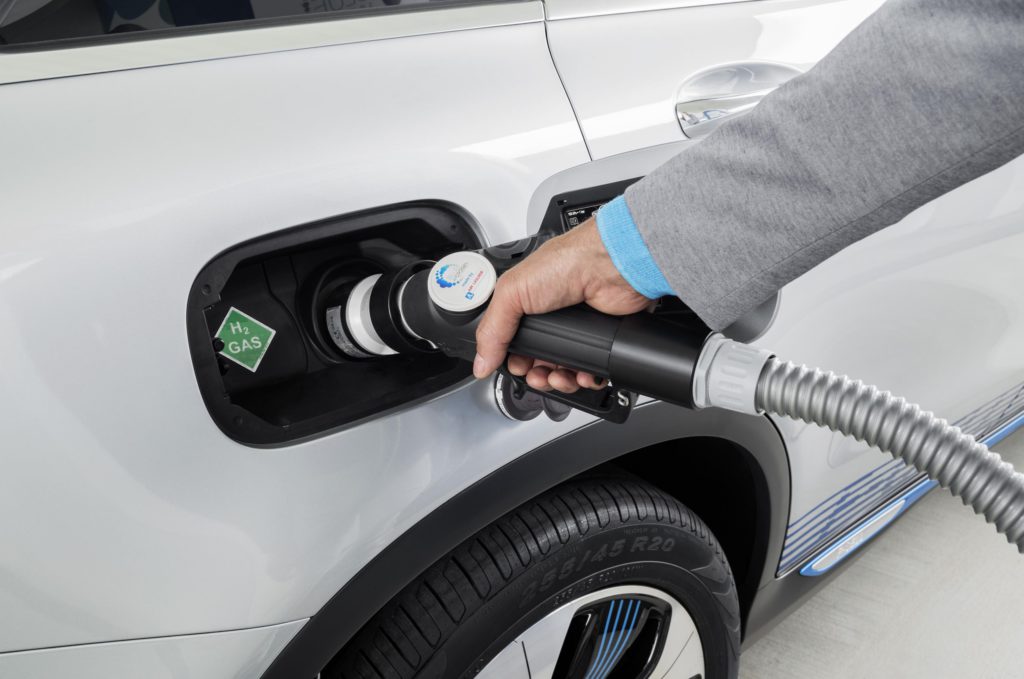Hydrogen council expands as it looks to promote technology
19 September 2018

19 September 2018
The Hydrogen Council, a global coalition for hydrogen technology companies, has announced the addition of 14 new members in its second wave of growth this year.
Formed at the COP23 climate change conference held in Bonn during 2017, a total of 18 multinational corporations came together to support hydrogen use in industry, transport and the energy sector. Founding members included BMW, Daimler, Audi, Toyota, Honda and Hyundai.
Eight companies have joined the group at the steering member level: Airbus, Air Products, Cummins, EDF, Johnson Matthey, KOGAS, SINOPEC and ThyssenKrupp, alongside six new members at supporting level: AFC Energy, Mitsubishi Heavy Industries, Ltd., Re-Fire Technology, Sumitomo Mitsui Banking Corporation, Sumitomo Corporation, and Southern California Gas. In addition, Faurecia upgrades its membership to steering level.
As a result, the Hydrogen Council now brings together an impressive group of 53 leading companies, accounting for 3.8 million jobs and €1.8 trillion in revenue from across 11 different countries. The group has more than quadrupled in size since launching at the World Economic Forum just 18 months ago.
The announcement came ahead of the Council’s annual CEO meeting that took place during the Global Climate Action Summit (GCAS) in San Francisco, USA. The meeting saw C-suite leaders of Council member companies come together for a day of strategic discussions, action planning and engagement with stakeholders, all geared towards delivering on a joint vision of hydrogen averting 6 Gt of CO2 emissions, creating a $2.5 trillion (€2.2 trillion) market and providing employment for more than 30 million people by mid-century. The Council has also been invited to present its work as part of the GCAS programme.
′We are delighted to welcome 14 new CEOs at the Hydrogen Council.’ said Benoit Potier, CEO and Chairman of Air Liquide and Co-chair of the Hydrogen Council. ′The level of interest in this initiative has exceeded all expectations and the group’s composition – including world leaders in energy, transport, industrial gas and other key areas – shows that global business considers hydrogen a vital part of energy transition efforts. I look forward to a productive meeting in San Francisco.’
Woong-Chul Yang, Vice Chairman of Hyundai Motor Company and Co-chair of the Hydrogen Council added, ′Over the last 18 months, we have brought together a critical mass of members, laid out a clear path forward to realize a global scale-up of hydrogen in our ′Hydrogen, Scaling Up’ study and fostered new actions with governments around the world. There is more to come – look out for more exciting announcements from the Council as we come together during the Global Climate Action Summit next week.’
As early as the year 2030, a study by McKinsey expects a rise in the number of hydrogen-powered vehicles to make them a relevant technology, especially in California, Japan, Germany and South Korea. Then, every twelfth car sold could have a fuel cell.
However, investment in this future would have to start now, emphasised all speakers of the Hydrogen Council at the Bonn Climate Change Conference. ′We need $25 billion (€28 billion) in annual investment and $280 billion (€312 billion) in various technologies by 2030,’ McKinsey consultant Bernd Heid suggested at the conference.